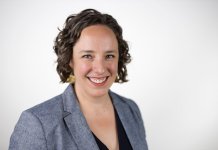Oak Hill exists For Healthy Churches, serving the local church by helping train and sustain Christlike leaders of all kinds who are trustworthy with God’s word, love people – both those in their care and the lost – and lead with skill and wisdom.
Over recent months we’ve been in conversations with around 150 churches/networks, hearing what they value about Oak Hill and what they’d like from us. It has become clear that many would value some different programmes/pathways, in addition to our existing ones.
Developing accredited programmes is not straightforward. Normally our programmes need revalidation every six years. In the Lord’s providence our revalidation with Middlesex University, which currently validates our programmes, is due in 2025. In advance of that, Middlesex has indicated that, for their own strategic and financial reasons, they are ending their thirty-year partnership with us at the end of the academic year 2024-25.
While we remain thankful to Middlesex University for their longstanding and productive partnership, this ending of that relationship provides an exciting opportunity for us to branch out, to respond to what churches are asking for, and to serve our existing constituencies, and new ones too, in ways which build on our existing strengths.
Teams within the college are currently developing a new suite of programmes that will serve the church. These programmes will be validated in July this year, ready to start in September 2025.
After careful consideration of the different options of a possible validating partner, the College Council decided that we should seek validation through Durham University’s Common Awards. Key reasons included:
- An ability to retain our own theological autonomy and propose our own distinctive pathways. It is only the academic qualification a student receives that is ‘Common’. College keeps control of the content of the curriculum and our ethos, within the same kind of external support for good practice which we’ve enjoyed with Middlesex.
- An ability to offer largely the same programmes that we already do and some new ones as well.
- An ongoing ability to train together students from across the breadth of the churches we serve now and might serve in the future.
- Good training pathways that can serve students from a wide variety of church backgrounds and can be tailored to the needs of different churches.
- A great flexibility about pathways, modules and offerings.
In future newsletters you’ll be among the first to hear about how our plans are progressing.










